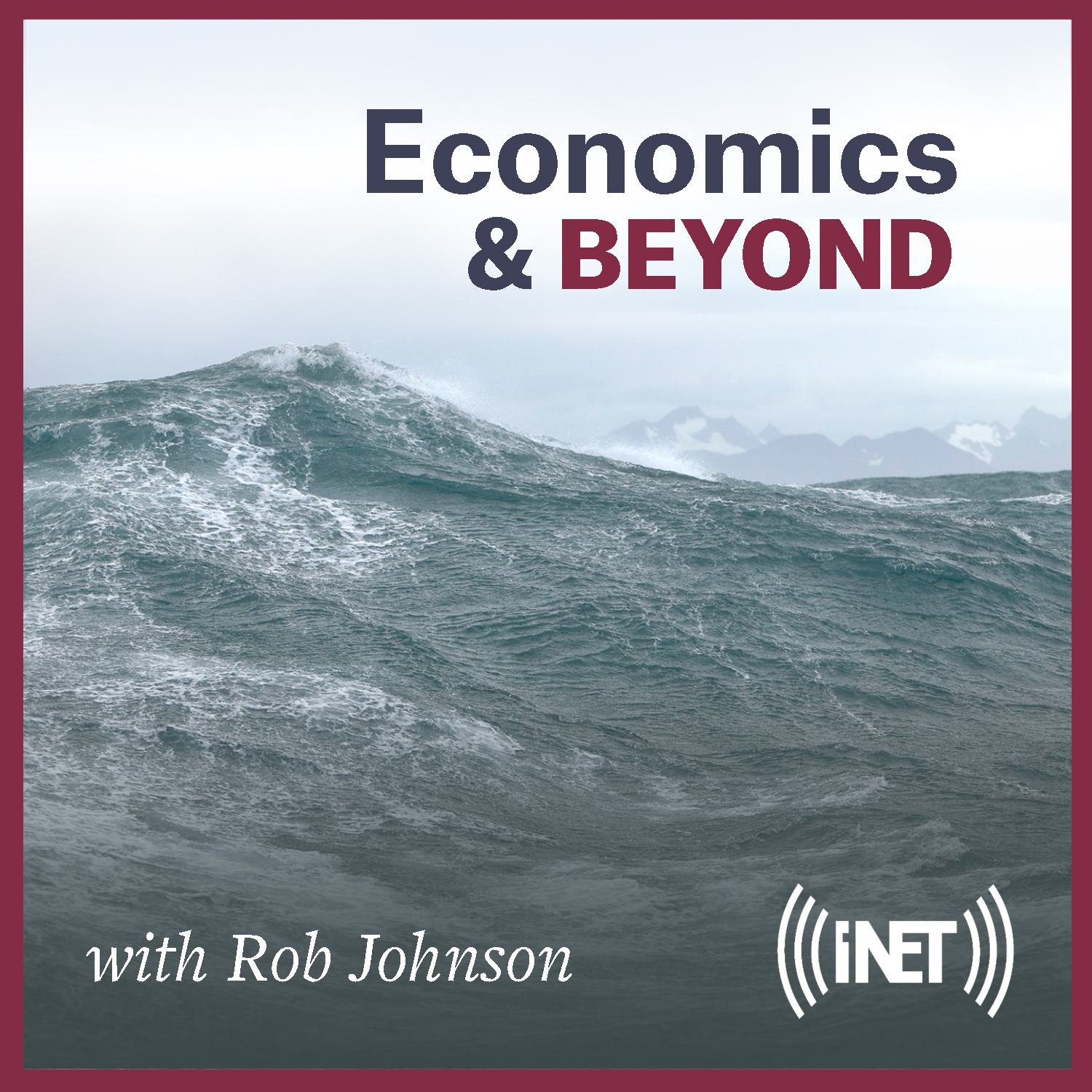

Economics & Beyond with Rob Johnson
Institute for New Economic Thinking (INET)
Rob Johnson is not your average economist, and this is not your average economics podcast. Every week, Rob talks about economic and social issues with a guest who probably wasn’t on your Econ 101 reading list, from musicians to activists to rebel economists. A podcast of The Institute for New Economic Thinking (INET).
Episodes
Mentioned books

Jul 21, 2022 • 23min
Frank McCourt: Trading Fear for Hope
Frank McCourt discusses his work to reinspire hope in the American experiment, and to build the framework necessary for that better tomorrow.

Jul 14, 2022 • 29min
Alan Murray: The Search for the Soul of Business
Corporate responsibility needs to evolve if businesses are going to rebuild trust and provide real value for society.

Jun 16, 2022 • 1h 6min
Thomas Piketty: Quality of Life for Billions of People is at Stake
World-renowned economist and inequality researcher Thomas Piketty in conversation with Rob Johnson, about Piketty’s just-released book, A Brief History of Equality.

Jun 9, 2022 • 1h 4min
Gary Gerstle: The Rise and Fall of the Neoliberal Order
Cambridge University's American History professor Gary Gerstle discusses his most recent book, about how the neoliberal order came about, why it is faltering, and the indeterminacy of what comes next.

Jun 2, 2022 • 56min
Jeffrey Sachs: Peace is the Result of Diplomacy, Never of War
Columbia University's renowned economist Jeffrey Sachs talks about the lessons he has learned from consulting with governments around the world, about how global problems, such as the war in Ukraine, will only be solved via efforts to understand the other side, never through force.

May 19, 2022 • 60min
Chen Long: Creating a Digital Circular Economy for Net Zero
Luohan Academy's Director Chen Long discusses the academy's latest report, on the benefits of creating a "digital circular economy," which would go a long way towards reaching net zero carbon emissions and addressing the climate crisis.
Report link: https://www.luohanacademy.com/insights/bc89734b94adf00c

May 5, 2022 • 48min
Peter Temin: Black and White America Always on Separate Trajectories
MIT economic historian Peter Temin discusses his new INET-CUP book, Never Together: The Economic History of a Segregated America, in which he shows how efforts to bridge the gap between races were always undermined, resulting in constant economic hardship for Black people.

Apr 28, 2022 • 1h 5min
Norman Solomon: The Ukraine War and the Madness of Militarism
Author and peace activist Norman Solomon talks about the double standards in US foreign policy that have smoothed the path for Russia's inexcusable invasion of Ukraine. The role of the military-industrial-complex in the US is one of the main reasons we lack a single standard for the use of military force and human rights, says Solomon.

Apr 21, 2022 • 1h 9min
Joanna Chiu—China vs. West: New World Disorder
The Toronto Star journalist Joanna Chiu discusses her book, China Unbound: A New World Disorder, which argues that we need to go beyond the typical over-simplifications of democratic West versus autocratic China if we hope to engage China in a way that seriously addresses issues such as human rights, climate change, and economic development.

Apr 14, 2022 • 1h 8min
Kishore Mahbubani: The Return of Asia in the 21st Century
Distinguished Fellow at the Asia Research Institute, National University of Singapore, Kishore Mahbubani, discusses his latest book, The Asian 21st Century, in which he relates US decline to the rise of plutocracy and Asia's renewed rise - after having fallen behind in the last 200 years - to its growing sense of dynamism, optimism, and diversity.
This is the 200th episode of the podcast Economics and Beyond with Rob Johnson.


